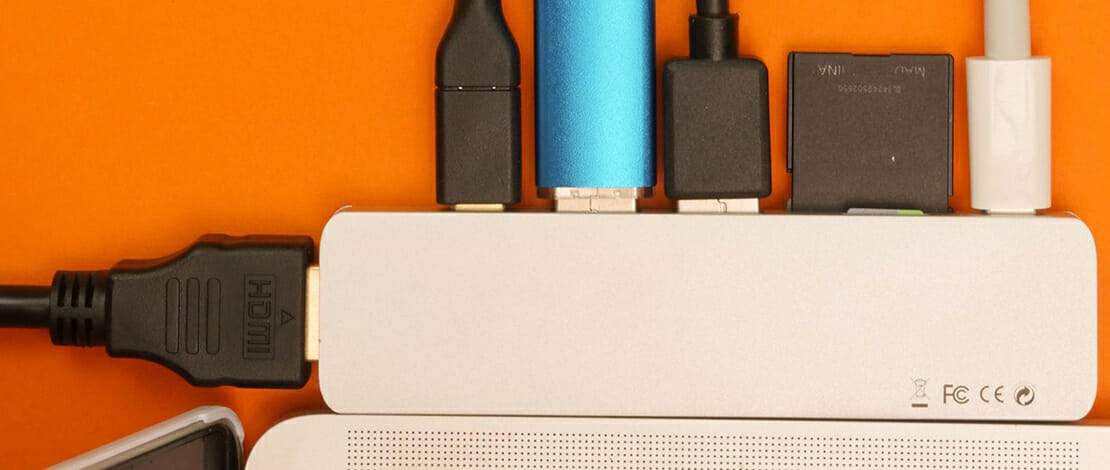Why NOT Use USB Hubs

USB hubs are a common tool used by many to make their life a little bit easier when it comes to feeding multiple USB devices to the PC. While USB hubs might help in terms of comfort, if you care about latency while gaming or audio fidelity, these devices suddenly lose a lot of their shine.
I’m not going to argue that USB hubs are evil and should be all thrown out, but I will explain why using them in certain cases might lead to unexpected problems.
Latency
USB hubs introduce latency and this is just a matter of technical limitations that we are yet to combat. These devices are seen as separate USB entities and they act as repeaters, which will receive the information, store it, and forward it. The USB hub also shares the capacity of the bus between multiple devices adding latency. Since the chain of actions is extended there is no doubt that using a USB hub for a sensitive device like your mouse will add latency while gaming.
In the worst-case scenario, you might even notice stutters and mouse cursor freezes while gaming which will impact the way you aim in games. This scenario is also very noticeable with audio devices since these are also quite sensitive to latency, so you might notice slight desync or delay in the worst possible scenario.
If you are a regular user that just mainly works on their PC then none of these issues will be noticeable to you, but if you also game on the side and are aiming for any competitive advantage you can find, then using a USB hub becomes a clear handicap.
Power Delivery
Another potential issue with using a USB hub is the limited amount of power a single USB can offer for other devices. In the case of a USB hub you are using one port to feed multiple devices therefore you might run into overheating issues (for the PC USB port) or stuttering and freezing for your devices in use – since they are not receiving enough power to function properly.
Without constant power, you can forget about stable polling rates for your USB devices as there is simply not enough juice to drive them all. You might also experience crashes for your PC as your USB overheats, or even worse – you might incur permanent damage to your motherboard.
The outcome of demanding too much from one USB port will depend on how good your motherboard power delivery is, so if you are not confident in what you have, you are gambling with a fire hazard (this also depends on how many devices you have plugged into your USB hub and how much power these consume).
Limited Speed
Depending on the type of USB hub you purchase you might be limiting the operating speed of your devices that might be using newer standards and faster transfer speeds. If you purchased a USB 2.0 hub but are using devices that support newer technologies like USB 3.0, unfortunately, these newer devices will be capped at the speeds of USB 2.0. If you are working with a lot of data that needs to be transferred around through USB flash drives, you should probably just take the extra time to plug your devices into the PC directly for the best transfer speeds.
Please read about USB, as your article is incorrect.
I am not quite sure how you have reached your conclusion but it is a well known fact that USB hubs introduce latency and should not be used for any latency sensitive work. I can plug my 4K Hz mouse into an USB hub right now and watch my USB polling rate degrade visibly. This is not rocket science.
I don’t have my mouse/keyboard or audio devices in my USB hub anymore as I noticed latency a lot but even though it’s just external hard drives connected to my USB hub now, I still notice the PC being sluggish now and then and when restarting the PC it takes longer. If I disconnect the USB hub the PC boots a lot faster.